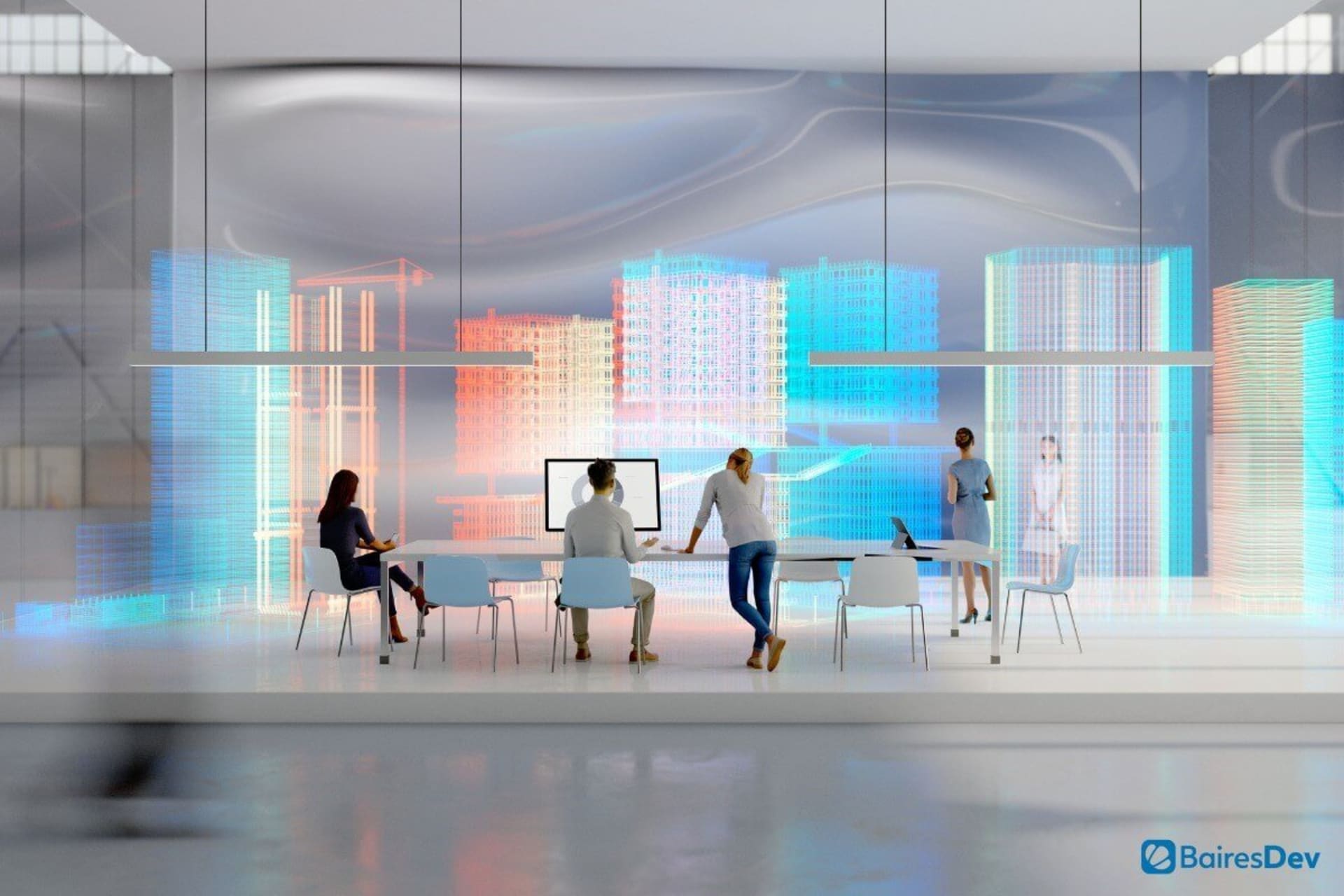Today’s technological landscape includes advances in numerous transformational technologies, including quantum computing, robotics, drones, artificial intelligence (AI), blockchain, the Internet of Things (IoT), virtual and augmented reality (VR and AR), and genetic engineering. The Fourth Industrial Revolution (4IR) is a term that describes the resulting blend of the physical, digital, and biological realms.
Well-known examples include GPS services that offer a digital representation of the physical world and tagging in online photo sharing services, which provide a digital system for recognizing biological attributes. But these capabilities are just the beginning of what the 4IR can offer.
These capabilities will be important for individuals, companies, organizations, and governments as human endeavors continue to keep pace with technology and vice-versa. President Biden mentioned the Fourth Industrial Revolution in a recent interview, noting how it reflects the “genuine inflection point in history” at which we find ourselves.
Here, BairesDev explores how 4IR is likely to impact business operations in the coming months and years.
New Opportunities
Like the 3 preceding industrial revolutions, 4IR “has the potential to raise global income levels and improve the quality of life for populations around the world,” according to an article by Klaus Schwab, founder and executive chairman of the World Economic Forum, who first recognized today’s technological advances as a “revolution.” The first 3 were characterized by the advent of the steam engine, the emergence of mass production, and the rise of computers.
The following video further explains the previous industrial revolutions and the one that is upon us now:
In the same article, Schwab predicted long-term gains in efficiency and productivity, lowered costs of transportation, communication, and trade, and more effective global supply chains, resulting in new markets and economic growth. However, he also saw the potential for greater inequality and labor market disruptions. He stated, “There has never been a time of greater promise, or one of greater potential peril.”
But what do these broad brushstrokes mean for company leaders? For one thing, opportunities to provide innovative products and services to customers, such as medical supplies delivered by drones, medical advances based on biotechnology breakthroughs, robots that can take over tasks humans don’t want to perform, new energy sources, and faster home and building construction using 3D printing.
Additionally, the possibility of enhancing the greater good. According to the World Economic Forum, “The Fourth Industrial Revolution is…an opportunity to help everyone, including leaders, policy-makers, and people from all income groups and nations, to harness converging technologies in order to create an inclusive, human-centered future.”
Enhanced CX
Customer experience (CX) is already a driving force in company success. Customers want granular personalization, contextual omnichannel communication, and frictionless processes. The businesses that deliver them have the healthiest bottom lines and the most loyal customers.
4IR technologies have the potential to help companies increase the quality of their CX. For example, in-depth data analysis provided by AI systems can boost personalization. VR and AR can offer immersive online options like virtual dressing rooms that make shopping easier and mean more fun for customers. And IoT devices like beacons can contribute to seamless trips to physical retail stores.
With so many new technology options, each company has the power to determine which ones will help them operate more effectively and efficiently and provide the greatest value to its customers. Businesses considering technology shifts should think about surveying customers to find out which services and features they want the most.
Security Challenges
Technological progress always comes with a price: security. Each new advancement includes vulnerabilities that have the potential to reveal customer and company data. For example, IoT devices — including EVs, appliances, robots, machines, and shipping sensors — provide additional attack vectors within homes and businesses.
Major breaches can cost time, money, and customer trust, which is why businesses that take advantage of 4IR technology must explore possible ways in which cybercriminals could exploit it and implement appropriate precautions. While no solution is 100% foolproof, business leaders must take this issue seriously.
With 4IR technologies, international security becomes more of a concern as well. Countries are already attacking each other’s infrastructure and — without proper hardening of the energy grid and other critical systems — will likely continue to do so, causing major disruptions to everyday life.
Job Transitions
The classic fear of robots and other automation taking people’s jobs isn’t unfounded. However, many fail to realize that, with the rise of this technology, new jobs will be created as well. For instance, operators are needed to run the new machinery and ensure it’s working properly. At the same time, people will be needed to provide things machines can’t, such as emotional intelligence, creativity, and critical thinking.
Some workers will need to be retrained with additional schooling or company-sponsored education programs. Businesses should start now to think about what technology might be needed to help them evolve and consider the training that will be required to ensure workers can effectively operate these systems.
One critical skill that is already becoming a requirement for professionals in many fields is data literacy. Even with AI systems providing indispensable decision-making capabilities, workers must be empowered to understand, interpret, and communicate with data. This skill set enables teams to base their decisions on objective criteria rather than gut instinct or guesswork. Companies must boost data literacy through employee training and development programs.
A Vision for the Future With 4IR
As with every human advancement, 4IR technologies can negatively impact our lives. However, the potential for growth and betterment is equally likely, with economic expansion, new capabilities, better health, greater convenience, and a high level of efficiency. In this version of the future, employees have the opportunity to work in ways they never thought possible, and individuals have the opportunity to live healthier, more productive lives.
If automated cars, robots that do work humans don’t want to do, cleaner air, astonishing medical advancements, and houses that practically build themselves sound far-fetched and futuristic, remember how fantastical the capabilities we currently have in place seemed just 10 years ago. That’s why companies should start thinking now about how they want to engage with 4IR and what benefits they can gain from it.






